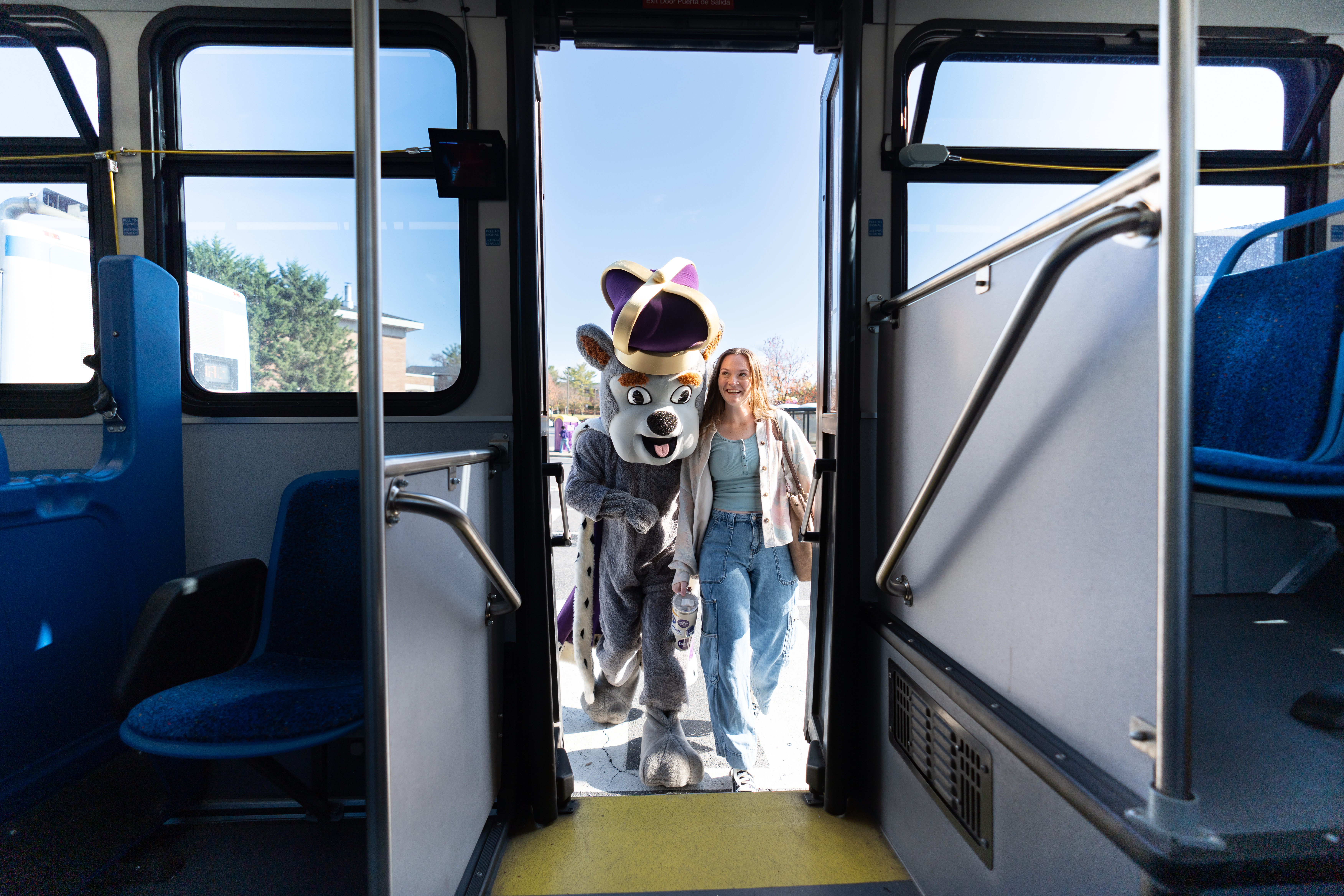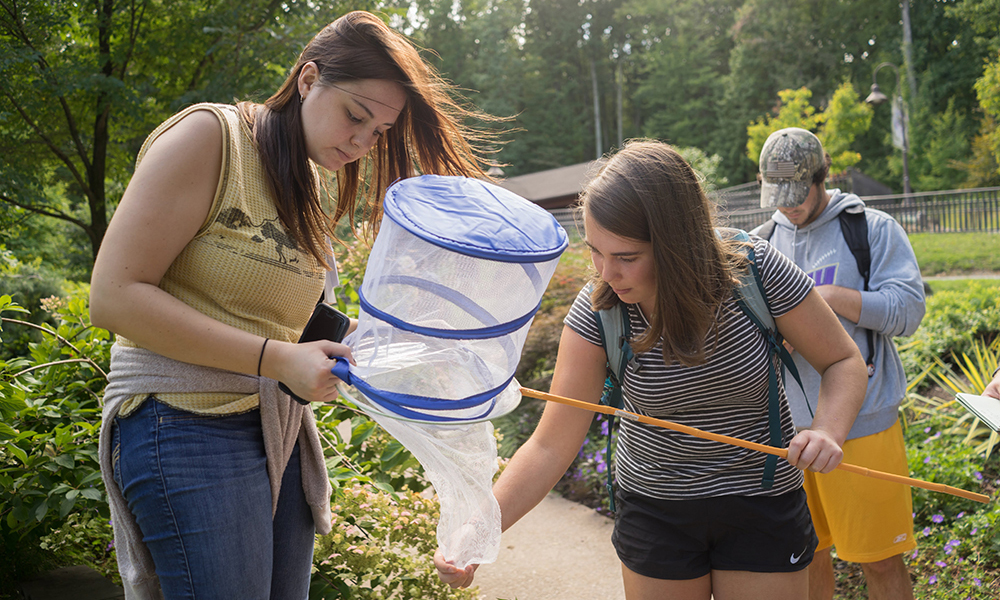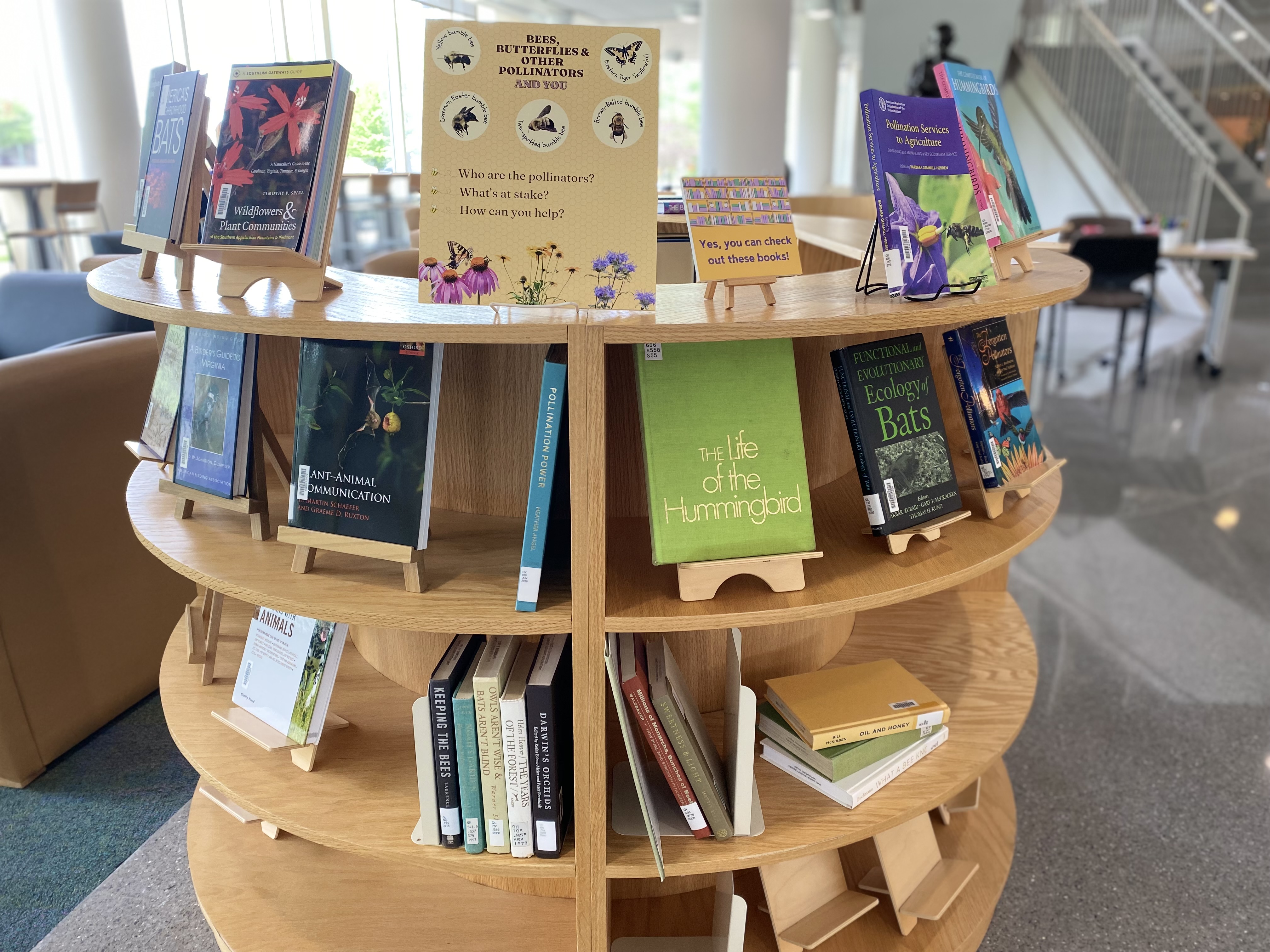The following are examples of collaborative projects between the Institute for Stewardship of the Natural World and other campus partners.

Transportation Initiatives
The Dukes Ride campaign promotes the benefits of riding the bus, including cost savings, convenience, and reducing environmental impact compared to driving and parking on campus.
An interdisciplinary team of JMU faculty, staff, and students launched a campaign to shift student transportation behaviors from driving to riding the bus when commuting between campus and off campus housing.
In the short term, the project aims to increase students’ awareness of the bus transit system, and the long-term goal is to achieve a shift in student commuting behaviors that can be measured by decreasing greenhouse gas emissions.
Partners include the School of Communication Studies, Institute for Stewardship of the Natural World, Parking and Transit Services, College of Integrated Science and Engineering, Off Campus Life, University Marketing, and Bluestone Communications students (the JMU student Public Relations Firm).
Health and Well-being

For more than a decade, the ISNW has been a Wellness Passport Partner, offering co-curricular programs to enhance student learning related the environmental dimension of health in the Health 100 course, offering an immersive learning experience at our Science On a Sphere visualization facility that explores the relationship between human health and the health of the environment.
The ISNW is actively engaged in the university’s focus on the health and well-being of our campus community. ISNW staff serve on the President’s Council for Health and Well-being, supported the adoption of The Okanagan Charter, and continue to form projects and partnerships that fulfill the charter’s commitments.
Pollinator Conservation

A history of commitment to protecting and restoring pollinator habitats at JMU is evident in the many pollinator-friendly gardens, landscape beds, and meadows across campus. In early 2019, the ISNW and Facilities Management initiated the process for JMU to be recognized as a Bee Campus, USA affiliate. We continue to co-chair the JMU Bee Campus Committee and work with partners to carry out our campus commitments, particularly in pollinator outreach and education.

